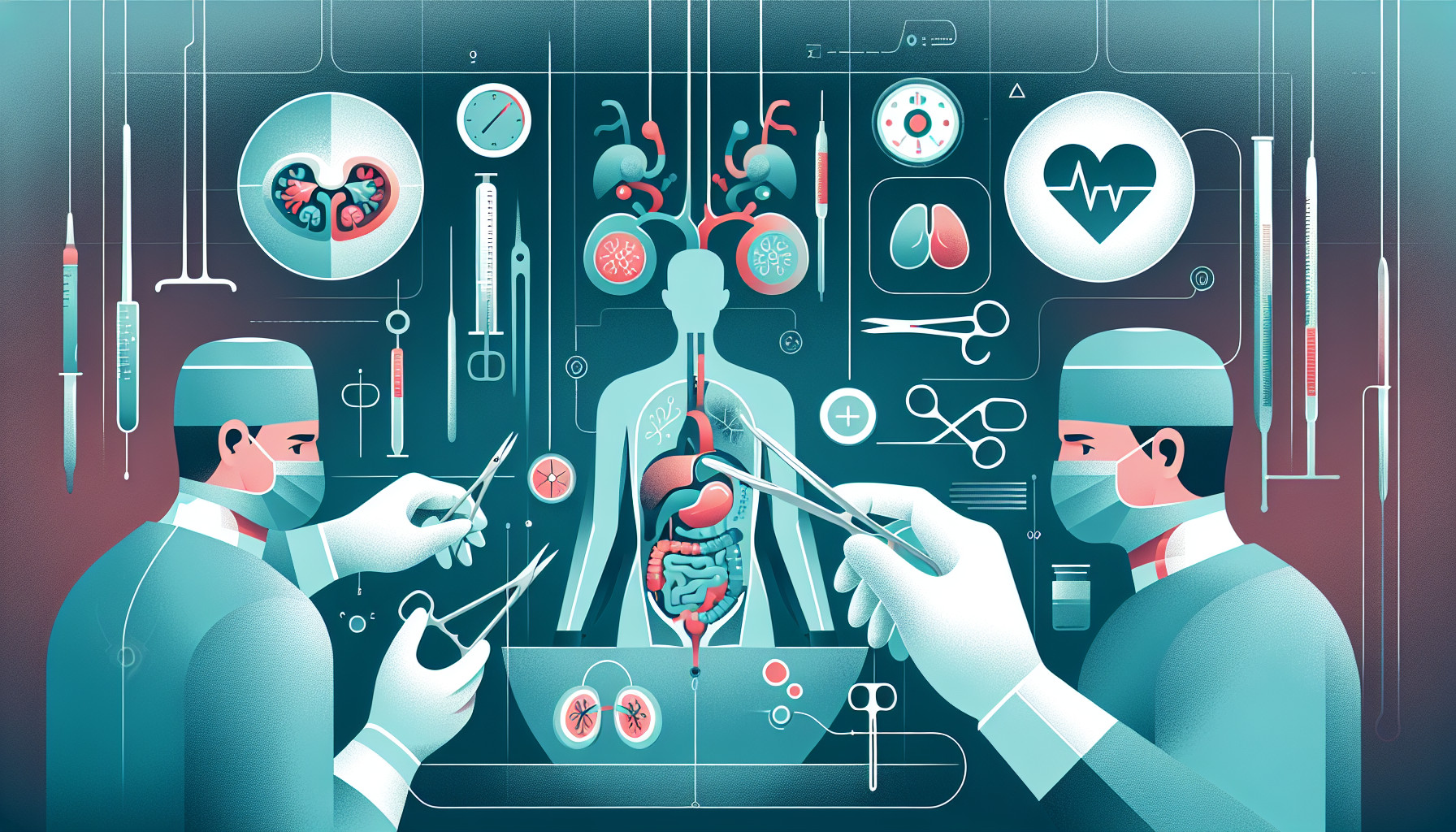Our Summary
This research paper discusses the long-term effects of childhood urological surgery. It was found that patients who had this type of surgery when they were young often face issues like kidney damage, bladder stones, B12 deficiency, and recurring infections as adults. These problems can be difficult to handle, especially issues with the urinary tract and catheter use. The study also notes that women who have had this surgery need special attention regarding their sexual health and pregnancy, and there is a risk of cancer in reconstructed bladders. The paper concludes by recommending that these patients have their follow-up care at specialized centers due to the complex nature of these issues.
FAQs
- What are the long-term effects of childhood urological surgery?
- What special attention is required for women who have had pediatric urologic reconstruction surgery?
- Why does the paper recommend follow-up care at specialized centers for patients who have had childhood urological surgery?
Doctor’s Tip
One helpful tip a doctor might tell a patient about pediatric urologic reconstruction is to make sure to follow up regularly with a specialized urology center for long-term monitoring and care. This can help to catch any potential complications early on and ensure that any issues are addressed promptly. Additionally, it is important to communicate openly with your healthcare provider about any concerns or symptoms you may be experiencing to receive the appropriate care and support.
Suitable For
Patients who are typically recommended pediatric urologic reconstruction include:
- Children with congenital anomalies of the genitourinary system, such as bladder exstrophy, hypospadias, epispadias, posterior urethral valves, and cloacal anomalies.
- Children with obstructive uropathy, such as ureteropelvic junction obstruction, ureterovesical junction obstruction, and posterior urethral valves.
- Children with neurogenic bladder dysfunction, such as spina bifida or spinal cord injury.
- Children with vesicoureteral reflux that is not responsive to medical management.
- Children with recurrent urinary tract infections or urinary retention.
- Children with traumatic injuries to the genitourinary system.
- Children with tumors of the genitourinary system.
These patients may require surgical intervention to correct anatomical abnormalities, improve bladder function, prevent kidney damage, or reduce the risk of recurrent infections. Pediatric urologic reconstruction can help improve quality of life and prevent long-term complications associated with urological conditions.
Timeline
Before pediatric urologic reconstruction:
- Patient is diagnosed with a urological condition that requires surgical intervention
- Patient and their family receive counseling and education about the surgery and potential outcomes
- Preoperative testing and evaluations are conducted to assess the patient’s health and determine the best course of action
- Surgery is performed to reconstruct the affected area of the urinary tract
- Postoperative care includes monitoring for complications, managing pain, and ensuring proper healing
After pediatric urologic reconstruction:
- Patient undergoes follow-up appointments to monitor their progress and address any issues that may arise
- Long-term complications such as kidney damage, bladder stones, and infections may develop over time
- Patients may need ongoing care and management of their urological condition throughout their life
- Women who have undergone reconstruction may require special attention regarding sexual health and pregnancy
- There is a risk of cancer in reconstructed bladders, necessitating regular surveillance and monitoring
- Patients may benefit from receiving care at specialized centers with expertise in pediatric urology and reconstructive surgery.
What to Ask Your Doctor
- What are the potential long-term effects of pediatric urologic reconstruction surgery?
- How often should I have follow-up appointments to monitor for any complications or issues?
- Are there specific lifestyle changes or precautions I should take to prevent future problems?
- What are the signs and symptoms of complications that I should watch out for?
- Are there any dietary or medication considerations I should be aware of post-surgery?
- Are there any specific sexual health considerations I should keep in mind?
- Is there an increased risk of cancer in the reconstructed bladder, and if so, how can it be monitored or prevented?
- What are the options for managing recurring infections or other complications that may arise?
- Are there support groups or resources available for individuals who have undergone pediatric urologic reconstruction surgery?
- Should I seek care at a specialized center or with a urology specialist for my follow-up care?
Reference
Authors: De Win G, De Kort L, Learner H, Noah A, Dautricourt S, Nijman R, Stein R. Journal: J Pediatr Urol. 2024 Apr;20(2):165-172. doi: 10.1016/j.jpurol.2023.07.008. Epub 2023 Jul 17. PMID: 37487882
